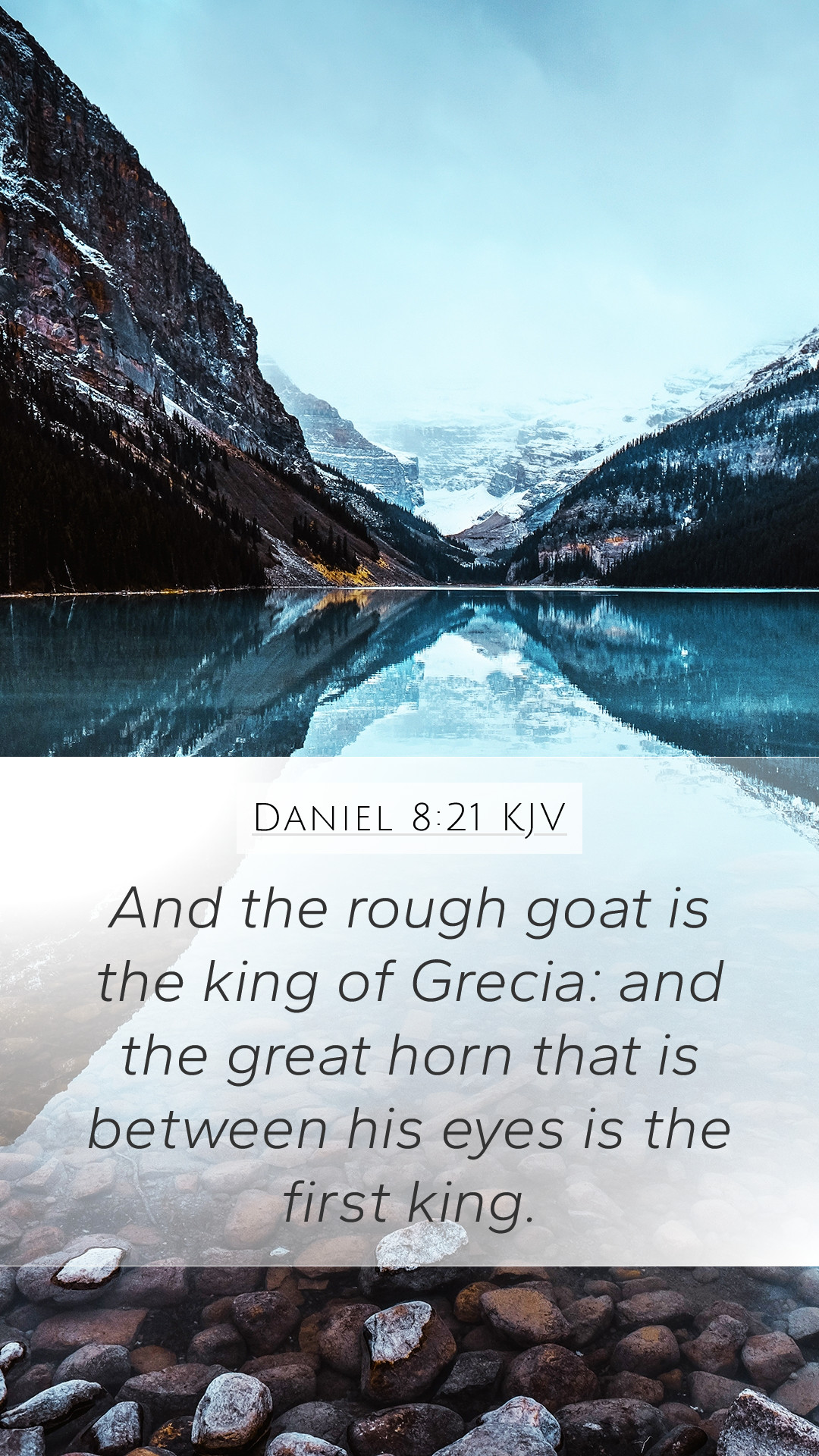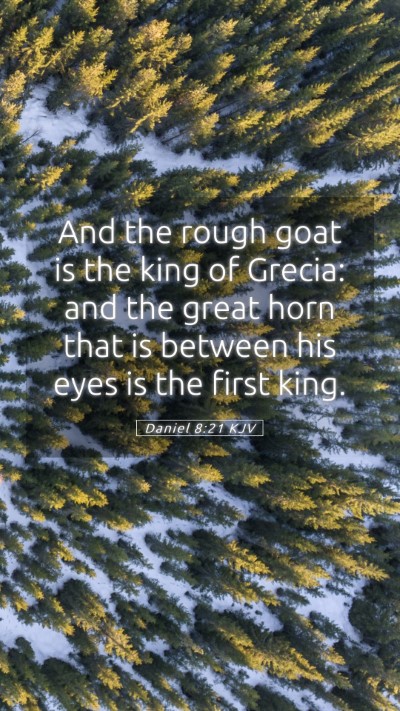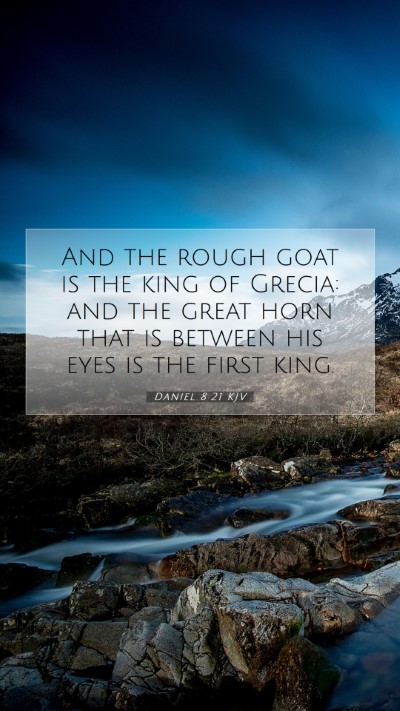Understanding Daniel 8:21
In this passage, Daniel receives a vision regarding the future of kingdoms and the fate of Israel. The specific verse reads:
"And the rough goat is the king of Greece: and the great horn that is between his eyes is the first king." (Daniel 8:21, KJV)
Overview and Context
This verse is part of a larger prophetic vision given to Daniel about the rise and fall of empires, specifically focusing on the Greek Empire's implications for the people of Israel. The chapter describes a conflict symbolically illustrated by a vision involving animals, each representing different kingdoms and rulers.
Meaning and Exegesis
This prophetic message indicates:
- The Rough Goat: Represents the king of Greece, illustrating the aggressive and turbulent nature of his reign.
- The Great Horn: Symbolizes the first king of Greece, commonly understood to refer to Alexander the Great, who embodied both power and swift conquest.
- Historical Significance: The verse encapsulates the shift of power from the Persian Empire to the Greek Empire and the impact it had on the ancient Israelite community.
Commentary Insights
Various public domain commentaries provide deeper insight:
Matthew Henry's Commentary
Henry emphasizes the symbolic meaning behind the goat and its aggressive demeanor, highlighting God's sovereignty in the affairs of nations. He insists that such prophecies assure believers that God is in control despite tumultuous political changes.
Albert Barnes' Notes on the Bible
Barnes further analyzes the horn's significance, explaining how it denotes the singular power and influence of a ruler. He elaborates on the historical context, showing how Alexander's actions foreshadow key events in biblical prophecy.
Adam Clarke's Commentary
Clarke discusses the importance of the symbols in Daniel's vision, stressing the prophetic nature and the certainty of its fulfillment. He notes the dual nature of prophecy as both a warning and an encouragement for God’s people during times of upheaval.
Applications and Lessons
This verse holds several applications for contemporary readers:
- This passage encourages believers to trust in God’s overarching plan, especially when kingdoms rise and fall.
- It serves as a reminder of the historical validity of biblical prophecies, reinforcing their importance in understanding God's interactions with humanity.
- It prompts reflection on leadership qualities through the lens of biblical governance, contrasting divine expectations versus human ambition.
Related Bible Verses
Several cross-references enhance the understanding of Daniel 8:21:
- Daniel 2:39: Discusses the sequence of kingdoms as represented by the statue in Nebuchadnezzar's dream.
- Daniel 7:6: Illustrates the four beasts, further clarifying the dominion of the Greek Empire.
- Zechariah 1:8: Contains prophetic visions that mirror Daniel's illustrations of God's governance over nations.
Conclusion
Daniel 8:21 is an integral part of the prophetic literature in the Bible, offering expansive insights into biblical prophecy. Understanding this verse involves not just historical context but also theological reflection on God's sovereignty and the nature of human power. Readers engaging with this verse through various Bible study tools and resources can find deeper meanings and applications for their lives today.
By studying such verses, we can enrich our understanding of Scripture and apply the profound lessons learned to our daily lives, maintaining an awareness of God's overarching narrative in world history.


